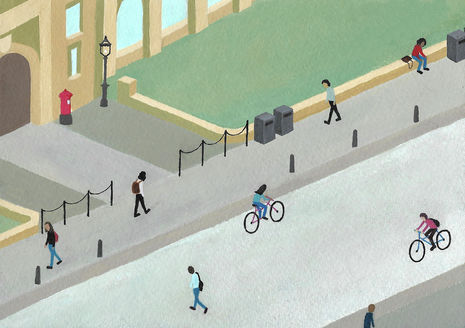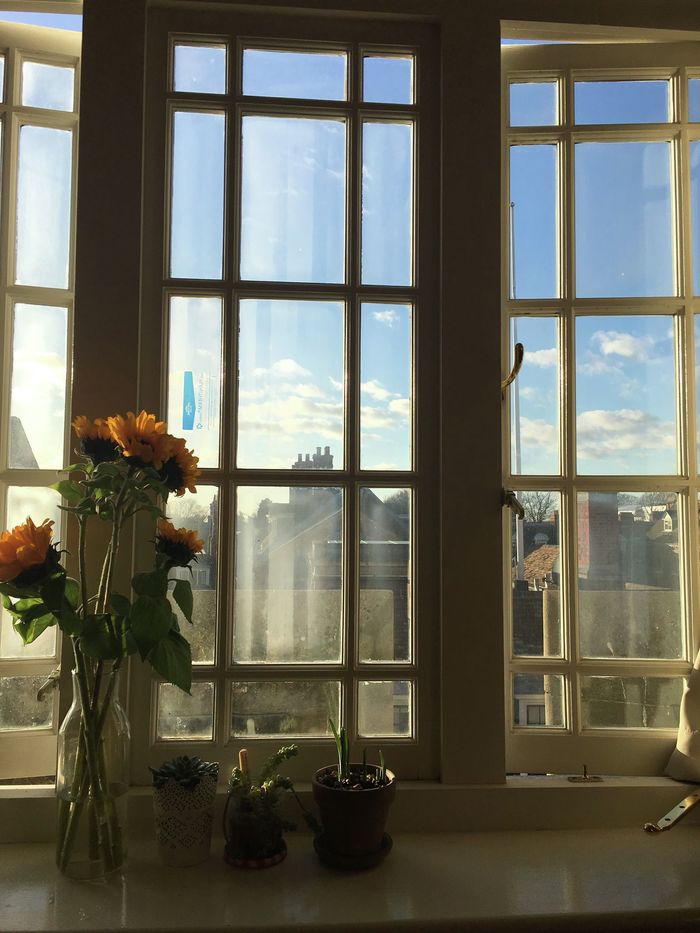The pernicious problem of student loneliness
Dr Niall Campbell, a Project Officer working on the Wellbeing Implementation Plan, reveals the proliferation of students that are feeling lonely within the University

There is a pernicious and complicated health problem currently generating huge amounts of suffering and isolation across the globe. Those affected are often hiding in plain sight, and new research suggests it is particularly prevalent at Cambridge University. But it isn’t a coronavirus… It’s loneliness.
The recent loneliness report released by the Cambridge University Students’ Union contained some alarming findings. It found that 75% of students’ surveyed feel lonely on a daily or weekly basis.
Loneliness is no joke. Dr Julianne Holt-Lunstad, a professor of psychology and neuroscience at Brigham Young University who has studied loneliness extensively, has found that loneliness can lead to serious health consequences. One of her landmark studies has found that lacking any social connection might be comparable to smoking 15 cigarettes a day as a risk factor for mortality. Another study found that people who identified as being lonely had a 26% increase in the likelihood of mortality. Her findings also indicate that the influence of social relationships on the risk of death are not just comparable with well established risk factors for mortality such as smoking and drinking alcohol, but may actually exceed the influence of other risk factors such as physical inactivity and obesity.
"Lacking any social connection might be comparable to smoking 15 cigarettes a day as a risk factor for mortality"
Loneliness is perhaps best understood as a subjective feeling of being alone against your will. This key distinction around control is what delineates isolation from solitude. It is the difference between deciding to treat yourself to a movie night for one, versus crying on the sofa because you wish you had someone to watch Netflix with.
In terms of the ‘subjective’ aspect of loneliness, Dr. Holt-Lunstad says it is all to do with how big the gap is between your expectations and your reality. “The discrepancy between one's actual and desired level of connection is very subjective, because some people may have higher expectations of social interaction than others. Whilst it’s maybe not so relevant to the average Cambridge University student, an example often given by researchers in this field is to compare, say a grandmother in Norway and grandmother in Italy. They might have very different expectations about how often their grandkids should visit, and their subjective feelings of loneliness might therefore differ. Even if the Italian grandkids visit more frequently than their Norwegian counterparts, if the discrepancy in that expectation is higher, then the Italian grandmother will likely report higher perceived levels of loneliness."
When it comes to the importance of social connections for a given person, quality is just as important as quantity, as“loneliness isn’t just driven by having a high expectation for the frequency of social interaction. It could be that you expect your friends to be there for you when you have hard times at college - whether it's just to help you emotionally or to help you in tangible ways. People can feel lonely because the 'quality' of the relationship just isn’t perceived to be there."
"The continued digitisation of our human connections is inevitable"
Not everyone is equally vulnerable to the negative impacts of isolation. Dr Holt-Lunstad’s work has helped identify some strong predictors of loneliness, for example that “people who live alone, those with lower incomes and those who have pre existing mental health conditions like depression and anxiety are particularly vulnerable to subjective feelings of loneliness. Students should be aware of these risk factors."
This profound epidemic has flown somewhat under the radar as a relative risk factor for poor mental and physical health, in part because social isolation is a common symptom of other conditions like depression. Dr Holt-Lunstad’s research has, however, helped to parse loneliness from the social withdrawal that is often downstream of other distinct mental health issues, as“we do know that isolation and loneliness have an effect on mental health independent of depression – so when you control for depression it still has an impact on mental and physical health. But certainly depression (alongside anxiety and other severe types of mental health) can of course compound isolation and loneliness."
The global pandemic has led to fairly radical shifts in how Cambridge University will have to function next Michaelmas term, and beyond. Whilst the increased migration of academic instruction to online platforms will be tricky, the greater challenge may in fact turn out to be the attempt to reappropriate the social aspect of the Cambridge University experience.
The continued digitisation of our human connections is therefore inevitable, but Dr Holt-Lunstad thinks we should be careful before jumping to conclusions as to whether this constitutes a ‘good’ or ‘bad’ thing. It is much more nuanced than that."When it comes to engagement with social media for example, people who spend more time on these platforms tend to report greater feelings of loneliness and poorer wellbeing. But similarly, some of this is correlational, meaning that people who are lonely may just be more likely to use social media in the first place. We might know some of the short-term effects of heavy engagement with social media, but we don't yet have a really good grasp on the long-term effects of it.”
"People can feel lonely because the 'quality' of the relationship just isn’t perceived to be there"
Whilst there are few cut-and-dry answers regarding the impact of heavy reliance on the internet to conduct our social lives, there is growing body of evidence that would suggest more prosocial and less passive social media usage is a good way to go. "It's important to recognise ways to still maintain social connections while being physically distant," Holt-Lunstad said. "We need to show others that we are available."
She gave an example of what this might look like for Clubs and Societies at Cambridge University: “The pandemic means that there are no shortages of people who need help right now, so for example, a choral group at Cambridge, they might find a way to use social media to organise a concert for a socially isolated old people’s home - something like that."
Colleges are working hard to introduce social programs that help students feel more a part of their community, and on this point Dr Holt-Lunstad offers some guidance to help them detect the signal amongst the noise.“My advice to Cambridge Colleges - whatever you are planning on doing to mitigate against loneliness, make sure you properly evaluate it."
Being ‘oriented to the other’ runs through the heart of Dr Holt-Lunstad’s work, and after helping to create a foundational body of evidence highlighting this problem in our midst, she feels the pandemic might actually offer an opportunity to point the conversation into a more positive and solution-oriented direction. “I want to look at the positive side of things. How can our relationships be sources of positivity and joy in our lives? What role do they play when things are going well, not just when things are going bad. The media are so focused on the loneliness aspect, and it’s in the nature of scientists to focus on deficits and negativities. I have to keep saying that really the goal is to foster social connection!”
"It's important to recognise ways to still maintain social connections while being physically distant"
In the coming months there will be many listicles circulated with practical steps on how to connect with other people. Given how detrimental loneliness can be, such lists are, of course, all for the good, but it is perhaps more important to internalise the singular principle (that we are social animals who crave and need quality connections with other human beings) than it is to remember a multitude of methods.
Dr Holt-Lunstad's work has helped illuminate how vulnerable we are to isolation, but she is hopeful that the covid pandemic might actually help us to connect with how bolstered we are by connection.
"There is a Swedish proverb I really like", she says: "a shared joy is a double joy, a shared sorrow is half sorrow. I think we need to recognize just how powerful being socially connected and the positive protective side of things can be, and that we don't need to just focus on the deficits and the negative side of things – it is entirely possible we can come out of this pandemic stronger and more connected than we went in."
 News / Downing investigates ‘mysterious’ underground burial vault 29 December 2025
News / Downing investigates ‘mysterious’ underground burial vault 29 December 2025 Lifestyle / Ask Auntie Alice29 December 2025
Lifestyle / Ask Auntie Alice29 December 2025 News / Unions protest handling of redundancies at Epidemiology Unit30 December 2025
News / Unions protest handling of redundancies at Epidemiology Unit30 December 2025 Features / ‘Treated like we’re incompetent’: ents officers on college micromanagement30 December 2025
Features / ‘Treated like we’re incompetent’: ents officers on college micromanagement30 December 2025 Science / Astronomical events to look out for over the break29 December 2025
Science / Astronomical events to look out for over the break29 December 2025










